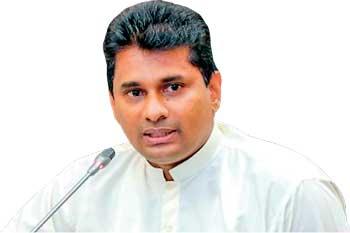Reply To:
Name - Reply Comment
 By Sandun A. Jayasekera
By Sandun A. Jayasekera
A thorough review on Sri Lanka’s drug policy and drug registration methodology was of utmost importance to curb the importation of not so essential pharmaceutical products, Pharmaceuticals Production, Supply and Monitoring State Minister Prof. Channa Jayasumana said.
The pharmaceutical market in Sri Lanka has been inundated with many unnecessary varieties of pharmaceutical products, while almost all the drug stored under the Ministry of Health Island wide were replete with drugs. The question is whether all these drugs are necessary or how often they are used when treating patients, he added.
Addressing a ceremony held to launch the project ‘Swastha’ that digitally connects all national, teaching, district and base hospitals in the country for exchange of data on health-related issues among them and in particular on drugs and medical equipment at the National Drug Transfusion Centre at Narahenpita, in order to maintain an efficient and systematic drug management system, Minister Prof. Jayasumana said the lack of data on drugs, medical equipment and other health infrastructure among medical establishments had become an impediment to establish a modern and effective health management system.
“The annual medicinal drugs import bill is approximately US$500 million, or about 140 billion rupees at today’s exchange rate. In 2020 alone, Sri Lanka has spent US$ 496.69 million to import drugs. This is 85% of the country’s requirement of drugs,” he stressed.
Sri Lanka imports approximately 1,200 brands of drugs annually, while the State Pharmaceuticals Manufacturing Corporation (SPMC) produces about 60 essential drugs under 300 brand names. However, many pharmacologists and medical experts are of the view that Sri Lanka must not import such a large number of pharmaceutical brands to the country. Therefore, a policy change on drug registration, quality control and importation was extremely vital, Minister Prof. Jayasumana emphasised.
The Government plans to produce 50% of the country’s requirement of pharmaceuticals locally within the next three years. In addition, plans are afoot to establish an Investment Zone of 400 acres in the Hambantota Industrial Zone for the manufacturing of medicine targeting the global market, Minister Prof. Jayasumana noted.